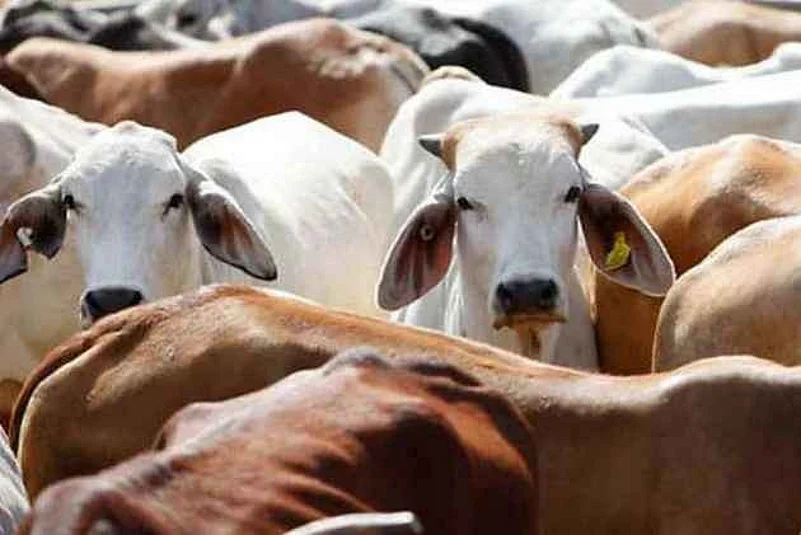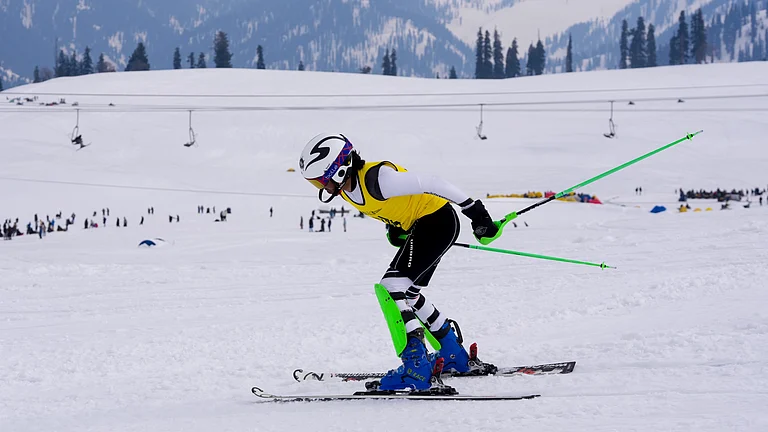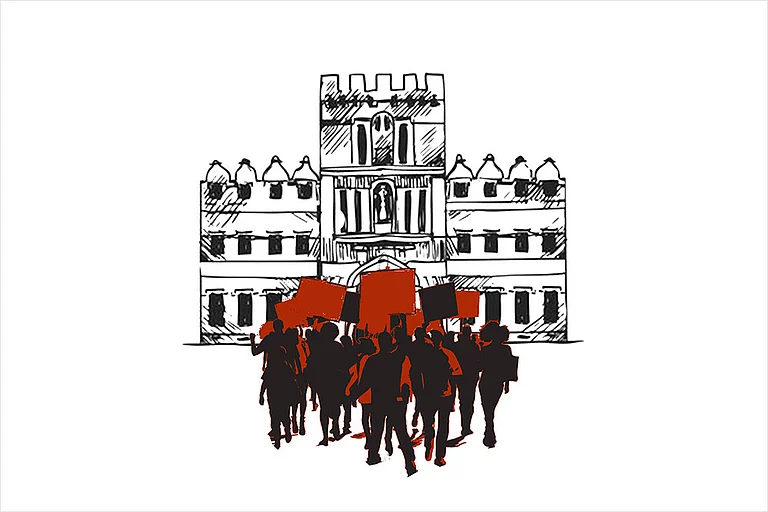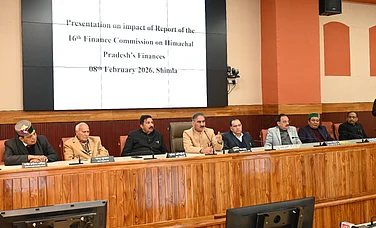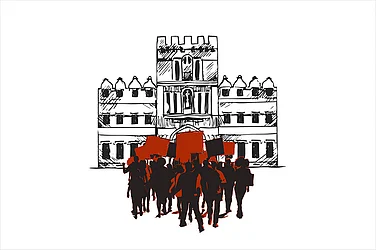Issuing a stern warning to all states and Union Territories, the Supreme Court on Monday warned that cow vigilantism and mob lynching would invite the "wrath of law".
Asking to comply with its directions on curbing such acts, a bench headed by Chief Justice Dipak Misra took note of the fact that some states are yet to file reports indicating their compliance of its July 17 verdict giving a slew of directions to deal with mob violence and cow vigilantism.
Some of the errant states and UTs are Mizoram, Telangana, Meghalaya, Manipur, Arunachal Pradesh and Delhi.
The bench, also comprising Justices A M Khanwilkar and D Y Chandrachud, asked the remaining states to file their compliance affidavits before it within one week.
"People must realise that mob violence and taking of the law into the hands will invite the wrath of law," it said.
"People should realise the gravity of the act. They should realise the effect on law and order situation," it said.
The bench considered the submission of senior advocate Indira Jaising that the direction, asking the Centre and states to run an awareness campaign on television, radio and on electronic and print media on cow vigilantism and mob violence, was not being followed.
It also took note of the submission that there should be a compensation scheme in place for the victims of such violence and asked the Centre and the states to respond on these two aspects within a week.
The bench also considered the submission of Additional Solicitor General Tushar Mehta, representing the Rajasthan Government, that a reply to the show cause notice has been filed by the state government into the death of Rakbar Khan in a case of alleged mob lynching.
Congress leader Tehseen Poonawala, in his plea, had said 28-year-old dairy farmer Rakbar Khan was attacked by a group of cow vigilantes in Lalwandi village of Ramgarh district in Rajasthan on July 20, three days after the apex court had delivered a detailed verdict.
The court had then taken note of the plea seeking contempt action against officials of the Rajasthan government officials, including the Chief Secretary and the police chief, for alleged violation of the top court's verdict in the lynching case.
Khan, a resident of Haryana and his friend Aslam, were transporting two cows to Kolgaon through a forest area when a mob had attacked them on alleged grounds that they were taking the animals for slaughter, the plea had said.
While Aslam managed to survive by hiding in the fields, the crowd killed Rakbar, it said, adding that there was a considerable delay in taking the deceased to a nearby hospital where he was declared dead on arrival.
The bench posted the matters for hearing after two weeks.
The Centre had earlier informed the bench that in pursuance of the apex court verdict, an empowered Group of Ministers had been set up to consider framing a law on mob violence.
The apex court had directed the Centre, states and UTs to give wide publicity to its directions given on the verdict on mob violence. It asked them to put the information on measures to curb mob violence on their websites so that people know the recourse available to them.
The top court had on July 17 said that "horrendous acts of mobocracy" cannot be allowed to overrun the law of the land and issued a slew of guidelines to deal with mob lynching and cow vigilantism, besides asking the Centre to consider enacting a new law to sternly deal with such cases.
It had issued a slew of directions to the government to provide "preventive, remedial and punitive measures" to deal with offences like mob violence and cow vigilantism.
It had asked the state governments to designate a senior police officer, not below the rank of Superintendent of Police, as nodal officer in each district to take steps to prevent incidents of mob violence and lynching.
The officers were asked to constitute a Special Task Force to procure intelligence and information about those likely to commit such crimes or were involved in spreading hate speeches, provocative statements and fake news.
The judgement was delivered on a batch of petitions including Mahatma Gandhi's grandson Tushar Gandhi and Congress leader Poonawalla seeking formulation of guidelines to curb incidents of mob violence and lynching in the country.
(PTI)






